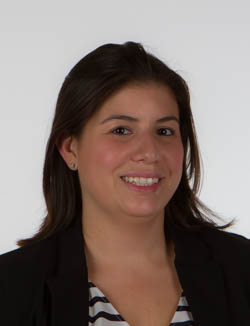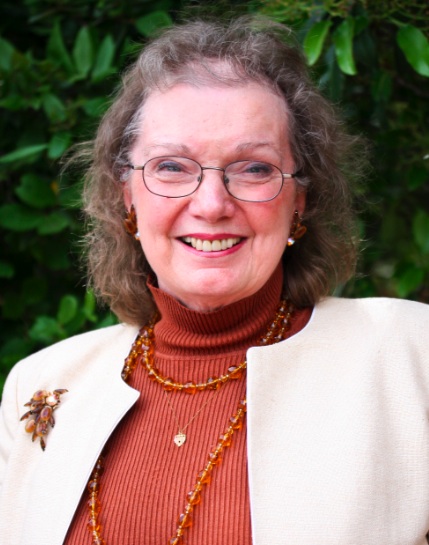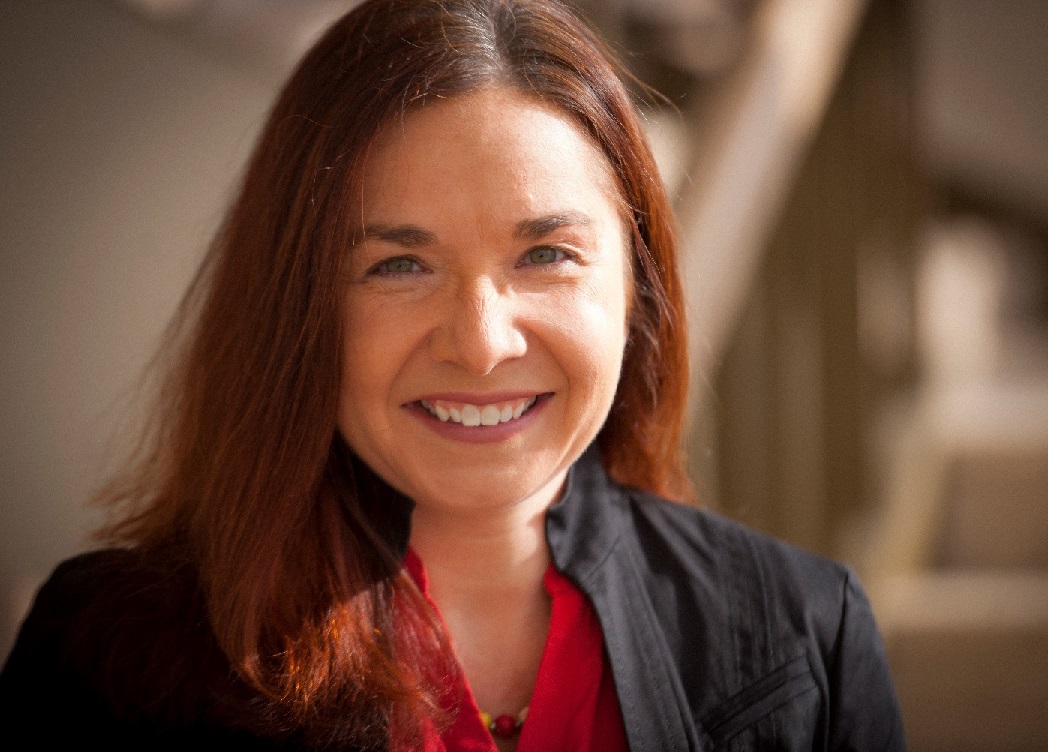Research Spotlight on Women Faculty: Sherice Gearhart, Janice Killian, and Katharine Hayhoe
March 23, 2020 |
During March, Texas Tech is celebrating women faculty who exemplify excellence in research, scholarship, creative activity, teaching, and mentoring.
Sherice Gearhart
Assistant Professor; Department of Public Relations

Gearhart's research deals with understanding how audiences respond to and perceive media messages. In particular, public relations efforts, news media coverage, and social media.
What inspired you to work in your field/area of expertise?
From a young age I have always been interested in media and communication. I have a distinct memory from when I was about 6 or 7 years old and I wanted my dad to change the channel from the news to something more entertaining. He told me the news was important and when I asked why, he said "that's how people learn about what's happening in the world." I don't feel as though I have ever stopped thinking about that statement. Instead, my thoughts about this question have broadened as I consider how news creation, types of sources, and ways of accessing information have changed.
Who inspired you to pursue academia?
My mom was my first inspiration to pursue an academic career. She was a non-traditional college student who continued to pursue her degree after getting married and while raising two children. I sometimes attended classes with her, got to hang out on the campus and interact with her professors, all before the age of 7. I knew then I wanted to be a "scientist" and I have simply spent my time since figuring out what type of scientist I am.
Once I wrapped up my undergraduate degree, I felt as though I had not finished exploring the areas that interested me. When I started my graduate school education, I was lucky to be paired with a good mentor, Dr. Seok Kang, while working on my master's degree. With his encouragement, I was able to find the right Ph.D. program. Once enrolled, I hit the jackpot again when I was assigned to work as a research assistant for Dr. Weiwu Zhang. As the work continued throughout my degree program, his mentorship led me to understand what it means to work in academia and the multifaceted nature of this type of career.
What would you tell your female students interested in pursuing an academic career?
For female students interested in pursuing an academic career, I would tell them to pursue their passion(s) and to be ready to work hard. As a woman working in academia, I've been fortunate enough to encounter a broad range of mentors who have helped me along. I would encourage all female students to look for mentorship as they pursue their own careers.
While the work isn't always easy, if you are meant to be in an academic career you will find it incredibly rewarding. With that being said, all females should be cognizant that, despite the great advances in society, all women continue to face obstacles in the workplace. This is not a product of academia, rather a reality of the world we live in. Yet, in an academic career, you can look forward to open-mindedness, collegiality, and mental stimulation that I like to believe is unique to this type of career.

Janice Killian
Professor; Chair of Music Education; School of Music
 Killian is an experienced public school educator focusing primarily on the junior
high choral experience, teaching grades K-12 in Kansas, Connecticut, Minnesota and
Texas as well as in higher education.
Killian is an experienced public school educator focusing primarily on the junior
high choral experience, teaching grades K-12 in Kansas, Connecticut, Minnesota and
Texas as well as in higher education.
What inspired you to work in your field/area of expertise?
Music is my field. My biggest career decision was whether to be a music performer or a music educator. The decision became easy once I realized that as a soprano, you occasionally perform, but as teacher, you get to perform every day, plus you truly make an obvious difference in student lives by bringing them to music. Teaching music became my true passion. And I am proud to say that this semester I complete my 51st year of teaching music.
I was fortunate to live in a small town because in that setting you get to do everything. The other advantage in a small school is that there is only a single class with no divisions into high achieving and less achieving sections. I consider this a huge advantage as an educator because knowing diverse people informs my understanding of a variety of students.
Gender roles appear to me to be a bit different in farming communities. Looking back, rarely was i told either deliberately or by implication that "girls don't do that." For example, I played trombone in band as did several female friends and didn't know until I read research in college that trombone is a "male" instrument.
Who inspired you to pursue academia?
An initial question might be "who inspired you to go to college in the first place?" My wise parents never asked me whether, only where I was going to college. I was the first in my family to attend college. I thank my parents' vision for that. My grandfather, an immigrant homesteader, always subscribed to National Geographic and owned books about Egyptian pyramids. Books remain my escape, my entertainment, and my way of learning.
By far the most influential person in my academic life is Dr. John Geringer who was my major professor during my life changing PhD work at UT-Austin. I doubt if he knows just how often his words play in my head as I advise PhD students.
A negative but influential situation involved my master's admission. I was assured "anyone from a school like yours is not ready for our school." Maybe I misunderstood, but today I often remember that incident while meeting applicants at Texas Tech. I walked out of this person's office with what I hope was dignity, and completed my masters elsewhere. Advice: be aware that your words (intentional or accidental, supportive or denigrating) can have a huge and lasting impact on your students.
What would you tell your female students interested in pursuing an academic career?
Currently it appears to be a good time to be a woman. My unit, music education, has collegial musicians/teachers/researchers, several of whom happen to be women: Dr. Eric Allen, Dr. Susan Brumfield, Dr. Carolyn Cruse, Professor Jenny Dees, Dr. Keith Dye, Dr. Jacqueline Henninger, Dr. Joel Pagan and Dr. Blair Williams.
My advice? Believe. in yourself. Give yourself time to improve your skills. Avoid comparing yourself to others. Believe you can and will improve. Avoid thinking that it is talent that some have and you do not. Focus on confidence and work ethic. Avoid wasting time identifying places you have been slighted because you are.....female, LGBTQ, male, women of color, introverted, married, have children, fat, attractive, or any other unimportant external characteristic. Move forward. Prioritize which things matter. Focus on your students' growth. Avoid trying to please everyone. Surround yourself with people who care about you; avoid those who just want something from you (and strive to tell the difference). Surround yourself with positivity. Read books for pleasure. Create or listen to music that makes you happy. Believe in yourself!
If this sounds like something your mother probably told you....you're right. So finally, listen to what your mother told you.

Katharine Hayhoe
Professor; Department of Political Science
 Hayhoe's research focuses on developing and applying high-resolution climate projections
to evaluate the future impacts of climate change on human society and the natural
environment. She has published over 125 peer-reviewed abstracts and publications and
served as lead author on key reports for the U.S. Global Change Research Program and
the National Academy of Sciences, including the Second, Third and Fourth U.S. National
Climate Assessments and the 2017 Climate Science Special Report.
Hayhoe's research focuses on developing and applying high-resolution climate projections
to evaluate the future impacts of climate change on human society and the natural
environment. She has published over 125 peer-reviewed abstracts and publications and
served as lead author on key reports for the U.S. Global Change Research Program and
the National Academy of Sciences, including the Second, Third and Fourth U.S. National
Climate Assessments and the 2017 Climate Science Special Report.
What inspired you to work in your field/area of expertise?
My undergraduate degree is in physics and astronomy, and I was planning to pursue a graduate degree in astrophysics when, to complete my degree, I needed another breadth requirement. I noticed there was a new class on climate science being offered and thought it looked interesting -- so I took it, and it changed my life.
I'd always thought of climate change as an environmental issue - an issue that environmentalists cared about and would try to fix, while the rest of us wished them well. Instead, in that class I learned that climate change is, as the US military now calls it, a threat multiplier. It takes the most serious humanitarian issues confronting humanity today – hunger, poverty, lack of access to clean water, injustice, refugee crises and more – and it makes them worse.
Once I knew that, how could I not do everything I could to help fix this huge global challenge?
Who inspired you to pursue academia?
A love of learning and science runs in my family. My great-great grandmother Suzanne was a governess; though not particularly well off, she still managed to send all four of her daughters to university in the 1910s, a time when it was unusual for women to pursue higher education. Her daughter Doris did the same; in the 1930s, my grandmother Emilie earned a degree in science education from McGill University, where she worked as a research assistant for Dr. Vibert Douglas, the first Canadian woman to become an astrophysicist and the first woman president of the Royal Astronomical Society of Canada. Emilie didn't work outside the home after she married, but she passed her love of science and learning on to her eight children, all of whom also graduated from university and three of whom, including my father, went on to earn multiple graduate degrees. So my inspiration to pursue learning through academia dates back not only years, but generations!
What would you tell your female students interested in pursuing an academic career?
Learn from those who've gone before, and offer a hand to those behind you. Don't be afraid to ask questions along the way and don't be afraid to fail: it's from our failures that we learn our greatest lessons.
Most of all, though, follow your heart and find your passion. Don't spend your life on something you're not excited about, that doesn't allow you to express who you are and what you care about.
Each one of us has a unique set of abilities and perspectives that no one else has. Our contribution can't come from anyone else: it has to come from us. So most of all, be your unique self!
Office of Research & Innovation
-
Address
Texas Tech University, 2500 Broadway, Box 41075 Lubbock, TX 79409 -
Phone
806.742.3905 -
Email
vpr.communications@ttu.edu
